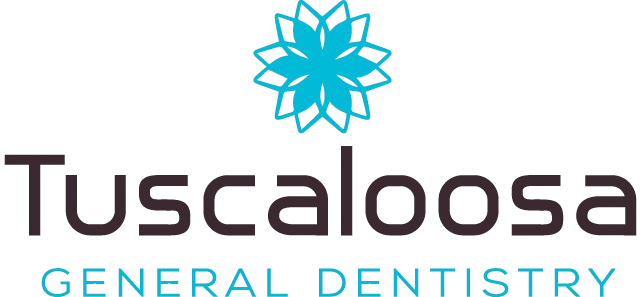Dental Implant Restoration
Dental implant restoration refers to the process of placing a prosthetic tooth or teeth onto a dental implant, which has been surgically embedded into the jawbone. An implant acts as a substitute for the tooth root and provides a stable foundation for the restoration, which could be a crown, bridge, or denture, depending on how many teeth need to be replaced.
Implant restorations are designed to look, feel, and function just like natural teeth, enabling patients to chew, speak, and smile confidently without worrying about discomfort or movement. Unlike traditional tooth replacement options, such as dentures or bridges, dental implants are integrated with the jawbone, making it a more permanent and stable solution.
The Dental Implant Restoration Process in Tuscaloosa, AL
At Tuscaloosa General Dentistry, our dentist in Tuscaloosa, AL, follows a meticulous and comprehensive approach to ensure that dental implant restorations are performed to the highest standard. Here is a step-by-step breakdown of the dental implant restoration process:
Step 1: Initial Consultation and Evaluation
The first step in the dental implant restoration process is a thorough consultation with Dr. Carlson. During this appointment, he will evaluate your overall oral health, take X-rays or CT scans to assess the condition of your jawbone, and discuss your goals and expectations for treatment.
Patients need to have sufficient bone density in their jaw to support dental implants. If bone loss has occurred, Dr. Carlson may recommend a bone grafting procedure to rebuild the jawbone before moving forward with the implant placement.
Step 2: Implant Placement
Once it has been determined that you are a suitable candidate for dental implants, the next step is the surgical placement of the implant. Dr. Carlson will surgically embed the titanium implant post into the jawbone at the site of the missing tooth. This post serves as the root of your new tooth, providing a secure and stable foundation.
After the implant is placed, a healing period of several months is necessary to allow the implant to fuse with the jawbone in a process called osseointegration. This ensures that the implant is firmly anchored and will provide long-term stability.
Step 3: Abutment Placement
Once the implant has fully integrated with the jawbone, the next step is to place an abutment. The abutment is a small connector that attaches to the top of the implant and serves as the base for the dental restoration.
In some cases, the abutment may be placed at the same time as the implant, while in other cases, it is placed after the healing process is complete. Dr. Carlson will determine the best approach based on your specific needs.
Step 4: Dental Restoration Placement
The final step in the dental implant restoration process is the placement of the custom-made dental restoration. This could be a single crown for a single missing tooth, a bridge for multiple missing teeth, or even a full arch denture for patients who have lost a whole arch of teeth.
Dr. Carlson will take precise impressions of your mouth to ensure that your restoration is custom made to fit perfectly and match the color and appearance of your natural teeth. Once the restoration is ready, it is securely attached to the abutment, completing the implant process. Contact us to learn more.
Types of Dental Implant Restorations in Tuscaloosa, AL
There are several types of dental implant restorations available, depending on how many teeth need to be replaced and the patient's individual circumstances. Dr. Carlson will help you choose the most suitable option for your specific case. Common types of dental implant restorations include:
Single-Tooth Implant Restoration
A single-tooth implant restoration is used to replace one missing tooth. The implant post is placed in the jawbone, and a custom-made dental crown is attached to the implant using an abutment. This is a highly effective solution for patients who have lost a single tooth due to trauma, decay, or other reasons.
Implant-Supported Bridge
An implant-supported bridge is an excellent solution for patients missing multiple teeth in a row. Rather than using traditional dental bridges that rely on adjacent natural teeth for support, an implant-supported bridge uses two or more implants to hold the bridge securely in place. This is a more stable and durable solution that doesn’t put stress on surrounding teeth.
Implant-Supported Dentures
For patients who have lost all or most of their teeth, implant-supported dentures are a stable and comfortable alternative to traditional removable dentures. Instead of resting on the gums, implant-supported dentures are anchored to multiple dental implants, preventing them from slipping or moving while eating or speaking.
There are two main types of implant-supported dentures:
- Fixed implant dentures: These are permanently attached to the implants and can only be removed by a dentist.
- Removable implant dentures: These snap onto the implants and can be easily removed by the patient for cleaning.
All-on-4® Implants
The All-on-4® dental implant system is a revolutionary technique that allows for the placement of a full arch of teeth using only four implants. This method provides a more efficient and cost-effective solution for patients who need full-mouth restoration and want to avoid the discomfort and inconvenience of traditional dentures.
Benefits of Dental Implant Restoration
Dental implant restoration can provide numerous benefits, making it one of the most sought-after treatments for tooth replacement. Some of the key advantages include:
Restored Functionality
Dental implants restore full functionality to your mouth, allowing you to chew, speak, and smile confidently without the worry of discomfort or slippage, as is often the case with traditional dentures.
Prevented Bone Loss
One of the most significant benefits of dental implants is their ability to prevent bone loss in the jaw. When a tooth is lost, the surrounding bone begins to deteriorate due to the lack of stimulation from the tooth root. Dental implants act as a substitute for the tooth root, stimulating the jawbone and preventing bone loss.
Long-Lasting Durability
Dental implants are designed to be a long-lasting solution with the potential to last a lifetime with proper care. Unlike other tooth replacement options that may need to be replaced or adjusted over time, dental implants are a stable and durable foundation that can withstand the forces of chewing and speaking.
Natural Appearance
Dental implants are custom made to match the appearance of your natural teeth, ensuring that your restoration blends seamlessly with the rest of your smile. Whether you need to replace a single tooth or a full arch of teeth, dental implants provide a natural-looking and aesthetically pleasing result.
No Impact on Surrounding Teeth
Unlike traditional dental bridges that require the adjacent teeth to be filed down for support, dental implants do not rely on neighboring teeth. This means that the surrounding teeth are left intact, preserving your natural tooth structure and oral health.
Improved Confidence and Quality of Life
Missing teeth can significantly impact your self-confidence and quality of life. Dental implants not only restore the appearance of your smile but also improve your ability to eat, speak, and interact with others without worrying about the limitations of traditional dentures or bridges.
Transform Your Smile With Dental Implants
At Tuscaloosa General Dentistry, Dr. John Carlson and his team are committed to providing the highest level of care for patients seeking dental implant restoration. If you're interested in learning more about how dental implants can transform your smile and improve your oral health, contact us today to schedule a consultation. With the right care, dental implants are a long-lasting and life-changing solution for missing teeth, allowing you to smile confidently once again.
Ready to achieve your best smile? Schedule your appointment with Dr. John Carlson at Tuscaloosa General Dentistry today! Call us at (205) 553-4477 or visit us at 631 Helen Keller Blvd #200, Tuscaloosa, AL 35404, and let us help you on your journey to optimal dental health.
Composite Bonding
Fixed Dentures
Implant-Supported Dentures
Denture & Partials
Dental Bridges
Composite Dental Fillings
Restorative Dentistry
Sports Mouth Guards
Oral Cancer Screening
Fluoride Treatment
Dental Cleaning & Exams
General Dentistry
Teeth Whitening
Dental Bonding
Cosmetic Dentistry
Complex Case Solutions
Veneers
Night Guards / TMJ Treatment
Crowns
TMJ Treatment


Office Hours
MON8:00 am - 5:00 pm
TUE8:00 am - 5:00 pm
WED8:00 am - 5:00 pm
THU7:00 am - 3:00 pm
FRIClosed
SATClosed
SUNClosed




